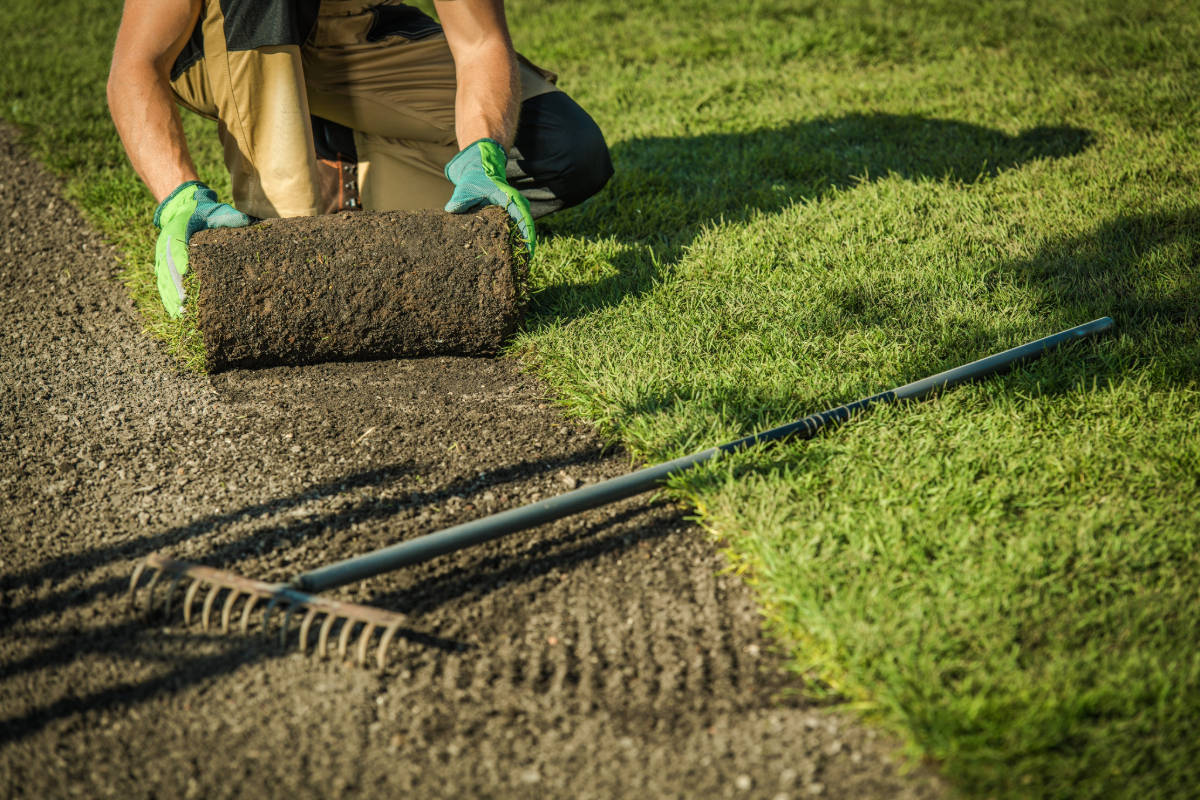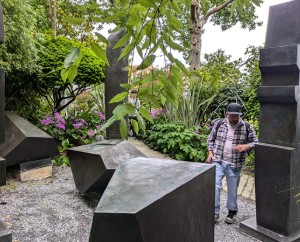Module | Module Aims | Delivery Methods |
|---|
Level 4 |
Academic and Professional Practice | This module will identify the key sustainable goals and policies that inform decisions towards a sustainable and resilient future. You will be provided with the vocabulary and language to progress and network within the wider industry.An examination of the implementation of goals, targets and legislation will allow reflection of the value of working towards common goals. Teamwork and academic skills and competencies will be identified and developed through groupwork. | A combination if lectures, workshops and presentations. |
Introduction to Botany | This module introduces you to the basic metabolic and synthesis processes of living plant cells and looks at plant cell biology and how this determines the overall structure of the plant. You will discuss the fundamentals of plant life covering the basics of cell biology and plant structure, including photosynthesis, respiration, and genetics. | A combination of lectures, laboratory practicals and investigating the Eden Project’s plant collections. |
Soil Science and Plant Nutrition | The aim of this module is to investigate the nature of soils and explore how soils affect plant growth and nutrition. The role of soil substitutes in the horticultural industry is introduced.Soil profiles and formation is explored and the physiological effects of growing/soil environments on plants are investigated with particular reference to water and nutrient availability and stress. | A combination of lectures, laboratory practicals and investigating the Eden Project’s technosol. |
Plant Use in the Landscape | This module aims to develop your ability to draw accurate scale plans for planting schemes; analyse a garden or landscape, selecting suitable plants for a specific site. You will also develop the ability to identify routine management procedures for a planting scheme in a variety of horticultural situations ranging from commercial production to ornamental landscaping. | A combination of lectures, tutorials and site visits. Plant identification skills will be developed as part of this module. |
Garden and Landscape Design 1: Foundations, Space, Place and User | This module introduces you to the critical and theoretical processes and visual language of garden & landscape design as a holistic process, encouraging the development and application of parallel critique, conceptual and creative skills. Particular emphasis is placed upon the language and principles of working with space in various locations through exploratory design projects. These encourage the formation of considered judgements about the spatial, aesthetic, technical and social qualities of a design proposal within the scope and scale of a wider environment. | A combination of lectures, workshops, guest speakers, presentations, tutorials, and site visits. |
Design Communication Tools and Techniques | This is a skills-based module which gives you a through grounding in the language of communicating space in 2D, 3D and oral/ verbal forms using both traditional and digital media. | A combination of lectures, workshops, presentations, tutorials, site visits and computer aided design. |
Level 5 |
Research Methods | The module will develop your research ability. Knowledge and understanding related to the research process, formulation of research questions, developing a research proposal, experimental design, appropriate and correct statistical analysis, presentation of data and results, constructing effective discussions and conclusions. | A combination of lectures, presentations, tutorials and IT workshops. |
Plant Growth and Development | The module enables you to develop a holistic view and understanding of plant physiology; which integrates and explores the physics that underpins many physiological processes with the control of growth and development regulated by plant hormones. The module aims to cultivate an understanding of the environmental impacts on plant physiology and compares and contrasts physiological adaptations with acclimation responses. | A combination of lectures, laboratory practicals, research and the use of specialist scientific equipment. |
Plant Production and Propagation | This module aims to equip you with practical propagation and production skills coupled with a theoretical knowledge that underpins these horticultural practices. You will gain practical experience of propagation and production both in college facilities and during a work placement. Sexual plant propagation is explored with reference to plant breeding, genetic modification and seed production. You will develop critical analysis of the suitability of different production techniques. | A combination of lectures, greenhouse practicals, presentations and research. You are required to conduct a three-week work placement as part of this module. |
Plant Ecology | This module aims to provide you with the opportunity to study the integration of plants within different environments and investigate how climate affects distribution. The effects of plants and their interactions with other organisms are assessed in an ecological context. The biochemical basis for these interactions is discussed. | A combination of lectures, field practicals, presentations and research. |
Garden and Landscape Design 2: Planning and People | This module draws on core themes raised in Garden and Landscape Design 1: Space, Place and User and both allows you to explore these in more detail and further develop your emerging design philosophy. Particular emphasis is placed upon the role and innovative, meaningful design solutions for the final user or user group(s) through exploratory design projects. In addition, the vocabulary for describing, analysing and designing gardens will be developed along with the use of applied hard and soft landscaping techniques. | A combination of lectures, guest speakers, presentations, tutorials and site visits. |
Garden and Landscape Histories Theories and Contexts | This module examines historical concepts relating to the development and design of gardens and landscapes, and relates these to modern design concepts and theories. The module considers conservation and restoration of gardens and landscapes with the context of personal and regional (local and international) sites of importance. | A combination of lectures, guest speakers, presentations and tutorials. |
Level 6 |
Honours Project | This module allows you to explore in detail an academic subject of your choice. The module comprises a substantial design project that meets a specific need and brief. You will also conduct a literature review addressing wider issues and relevance to your selected design subject. | A combination of tutorials, presentations and independent study. |
The Contemporary Horticultural Environment | This module aims to provide you with the opportunity to critically evaluate existing knowledge on topics of horticultural significance. You will develop the skills to convey the results of research and accompanying analysis. The integration of knowledge exchange with issue focussed recommendations arising from critical analysis culminates in a student-organised symposium on an agreed topic of importance to horticulture. | A combination of tutorials, presentations, group work and independent study. |
Sustainable Horticultural Enterprises | This module aims to draw together market, social and economic influences on horticultural enterprises and assess these in a business context set against economic viability, environmental resource responsibility and social (or market) acceptance.In the context of the horticultural industry the module will integrate sustainable development, policy and regulatory drivers, market influences and horticultural business management principles. | A combination of tutorials, seminars, guest speakers presentations and independent study. |
Advanced Plant Use and Implementation | The module enables you to investigate and familiarise yourself with a range of industry standard CAD software and produce designs to standard specification/templates.In developing designs, you will research and synthesise unique and bespoke planting plans and designs. The effects of climate change on design are investigated and analysis is made of existing plantings with reference to potential future changes. | A combination of lectures, presentations and tutorials. |
Professional Landscape and Garden Design Practice | This module offers you the opportunity to demonstrate and articulate through both visual and written media the culmination of your skills development within garden and landscape design. A particular opportunity is given to the demonstration of competency in detailed design within a professional context. | A combination of lectures, presentations and tutorials. |





